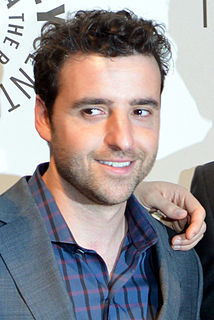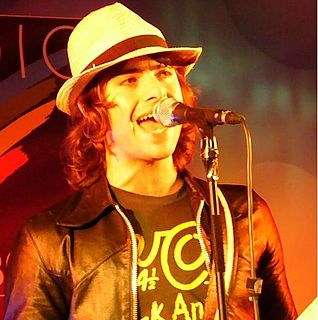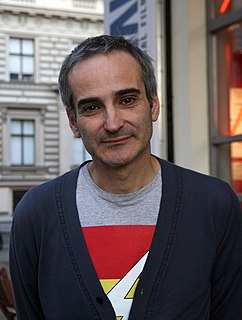A Quote by David Krumholtz
[10 Things I Hate About You] is a smart and grounded film about a real, well-rounded girl. I think the only other teen film that came close to getting that right was Can't Hardly Wait.
Related Quotes
The casting of any film is around 60% of the film, but it's also about the right casting insight. It's a bit like a house of cards, everyone has to match up in a certain way so the whole structure is grounded. So that's essential, and yes, it's about finding the right people and the right constellation around the lead character.
Silence Of The Lambs? is a ?fantastic? film. It's a horror film, and it's an incredibly well-told film that is about point of view in such a unique way. The way that film is shot, the way the eyelines are so close, if not directly into camera, betrays an intimacy with the characters and the audience.
I think I missed all of the wonderful things ... I missed the control that you have in film, and I missed getting it right, really getting it right, the way you hope people will see it. All of the things that people love about theater - the fact that it changes every night and that it's so spontaneous - all of those things just frighten me.
When I make films I'm very intuitive; I'm instinctive. When you are shooting there's little time to think about abstract ideas, it's about getting things done, getting them right, and trying to channel the energies and get the best of whatever you have on your set. It's only once the film is finished that it's like, "Okay, let's try to figure out what happened." Try to figure out exactly what I did.
I often find in the film world, that it's very self-referring. If you talk to someone about films, they talk about them in terms of other films - rather than as something that happened to them in their life. And I'm really keen to get back to film as a reference to real things, not necessarily to other films.
Truth is a pursuit, it's a quest. And proof is certainly in the pudding in this particular instance, because the film, and the evidence accumulated in making the film, led to this man's release from prison. And that's hardly ever happened, if it's happened at all, in any other film that I can think of.
[10 Things I Hate About You] keeps popping up, and it's become a go-to film specifically for adolescent girls who are trying to find their voice, which is a really important thing, and the characters in the film, the two sisters played by Julia Stiles and Larisa Oleynik, they became archetypes for young teenage girls to look up to and emulate.
I think that film festivals, we're very often given to understand, are about filmmakers and about films and about the industry of filmmaking. I don't believe that they are, I believe that film festivals are about film audiences, and about giving an audience the encouragement to feel really empowered and to stretch the elastic of their taste.
When you think of things like The Sopranos, The Wire, Damages, they are beating film on a regular basis. Most films are terrible. It's only the 2% that are good. There's things you can do on TV which you can't do on film. There is something about those episodic, serialisations that are grand and operatic.



































